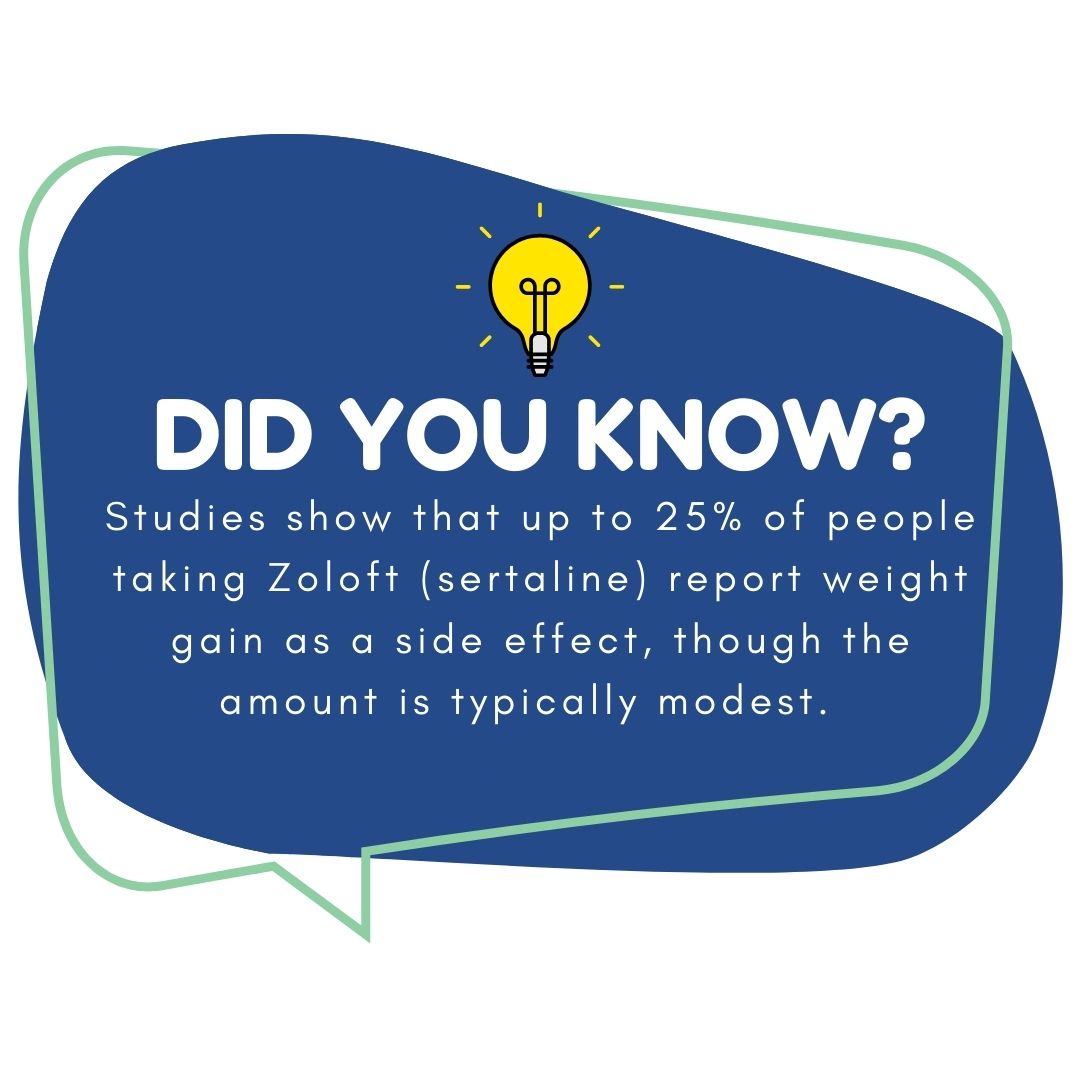Does Zoloft Cause Weight Gain? Understanding the Connection and Implications
Many people wonder if Zoloft can lead to weight gain. This is a common concern among those considering or currently taking this medication. Research shows that Zoloft may cause weight gain in some individuals, but not everyone will experience this side effect.
Understanding how Zoloft works can help users manage their expectations. It affects serotonin levels in the brain, which can influence appetite and metabolism. Some patients may notice changes in their weight, while others may not see any difference at all.
It is important for individuals to discuss their concerns with a healthcare provider. A professional can provide personalized advice and help monitor any changes. By addressing these topics openly, patients can better manage their treatment and overall health.
Zoloft Overview
Zoloft is an important medication used for treating mental health conditions. Understanding its purpose and applications helps clarify its role in treatment.
What Is Zoloft?
Zoloft is the brand name for sertraline, a type of antidepressant known as a selective serotonin reuptake inhibitor (SSRI). It affects chemicals in the brain that may become unbalanced and lead to mood disorders.
Zoloft helps increase serotonin levels, which can improve mood, anxiety levels, and overall well-being. It is usually taken as a tablet and can be prescribed in various dosages. This medication may take a few weeks to show its full effects, so patients should remain patient and consistent with their dosage.
Common Uses of Zoloft
Zoloft is commonly prescribed for several conditions. The most frequent uses include:
- Major Depressive Disorder: For managing symptoms of severe depression.
- Anxiety Disorders: This includes generalized anxiety disorder, panic disorder, and social anxiety disorder.
- Obsessive-Compulsive Disorder (OCD): Zoloft can help reduce compulsive behaviors.
- Post-Traumatic Stress Disorder (PTSD): It may help with PTSD symptoms.
- Premenstrual Dysphoric Disorder (PMDD): Zoloft can relieve severe mood swings associated with PMDD.
Doctors often choose Zoloft due to its effectiveness and relatively mild side effect profile. Regular follow-ups are necessary to assess its impact on patients’ conditions and make any needed adjustments.

Weight Gain and Antidepressants
Antidepressants can lead to changes in weight for some users. These changes can vary widely based on the type of medication and individual responses. Understanding how these medications might affect weight is important for those considering treatment.
Mechanisms of Weight Change
Antidepressants can influence weight through different mechanisms. Some medications may increase appetite, making individuals more likely to consume extra calories. Others can change metabolism, affecting how the body processes energy.
Certain neurotransmitters, like serotonin and norepinephrine, are altered by these drugs, which plays a role in weight control. For instance, increased serotonin levels can lead to cravings for carbohydrates.
Additionally, the way a person feels while on these meds can affect their activity levels. If someone feels more energized, they might exercise more. Conversely, if they feel lethargic, they may be less active, contributing to weight gain.
Analysis of Clinical Studies
Many studies have investigated the link between antidepressants and weight. Research shows that some antidepressants, like SSRIs, can cause weight gain in the long term.
For example, a study found that patients on certain SSRIs gained an average of 5-10% of their body weight within a year. Other medications, like bupropion, are associated with weight loss.
It’s also important to note that individual responses vary. Factors such as genetics, lifestyle, and diet play significant roles. Some people may not experience any weight change at all.
Recognizing these patterns helps doctors and patients make informed choices about antidepressant options.
Managing Weight While on Zoloft
Maintaining a healthy weight while taking Zoloft can be challenging. This section discusses practical approaches to lifestyle changes and the importance of monitoring weight through regular consultations with healthcare professionals.
Lifestyle Modifications
Making specific changes to daily habits can help manage weight. Here are some effective strategies:
- Balanced Diet: Focus on eating fruits, vegetables, whole grains, and lean proteins. Limit sugary snacks and beverages.
- Regular Exercise: Aim for at least 150 minutes of moderate exercise per week, like walking or swimming.
- Portion Control: Be mindful of portion sizes to avoid overeating. Smaller plates can help.
- Stay Hydrated: Drinking enough water can help control hunger and keep the metabolism active.
These modifications can aid in weight management and improve overall well-being while on Zoloft.
Monitoring and Consultation
Regular check-ins with a healthcare provider are essential. They can provide personalized advice and track weight changes. Consider these steps:
- Weekly Weigh-Ins: Tracking weight regularly helps recognize patterns and make timely adjustments.
- Nutritional Guidance: A dietitian can offer tailored meal plans that suit individual needs and preferences.
- Patient Education: Learning about potential side effects and their impact on weight can empower informed decisions.
Frequent communication with healthcare professionals supports effective weight management and helps address any concerns promptly.
Frequently Asked Questions Related to Does Zoloft Cause Weight Gain
Patients often wonder about the connection between Zoloft and weight changes. Many seek clarity on dosage effects, individual experiences, and weight management strategies.
Will an increase in Zoloft dosage lead to weight gain?
Increasing the dosage of Zoloft may lead to weight gain for some individuals. Higher doses can affect appetite and metabolism, but this varies from person to person.
Is there a correlation between Zoloft and changes in body weight?
Research suggests there can be a correlation between Zoloft use and body weight changes. Some patients report weight gain, while others notice no significant changes or even weight loss.
Can Zoloft impact metabolic rate and contribute to weight changes?
Zoloft may influence metabolic rate in some users. Changes in serotonin levels can affect how the body processes food and utilizes energy, potentially leading to weight changes.
What are patient experiences with weight gain while taking Sertraline?
Many patients report weight gain as a side effect of taking Sertraline, the generic name for Zoloft. Experiences vary widely, with some individuals gaining a few pounds and others experiencing more noticeable increases.
How can one manage body weight while on a regimen of Zoloft?
Managing body weight on Zoloft involves maintaining a balanced diet and regular exercise. Keeping track of food intake can also help individuals stay aware of their eating habits.
Are there strategies to prevent weight gain when prescribed Zoloft?
To prevent weight gain on Zoloft, patients can focus on healthy eating and consistent physical activity. Consulting with healthcare providers for personalized strategies can also be beneficial.
You’re not alone, and help is always within reach. Contact us today at (774) 619-7750 and take control of your mental health.




